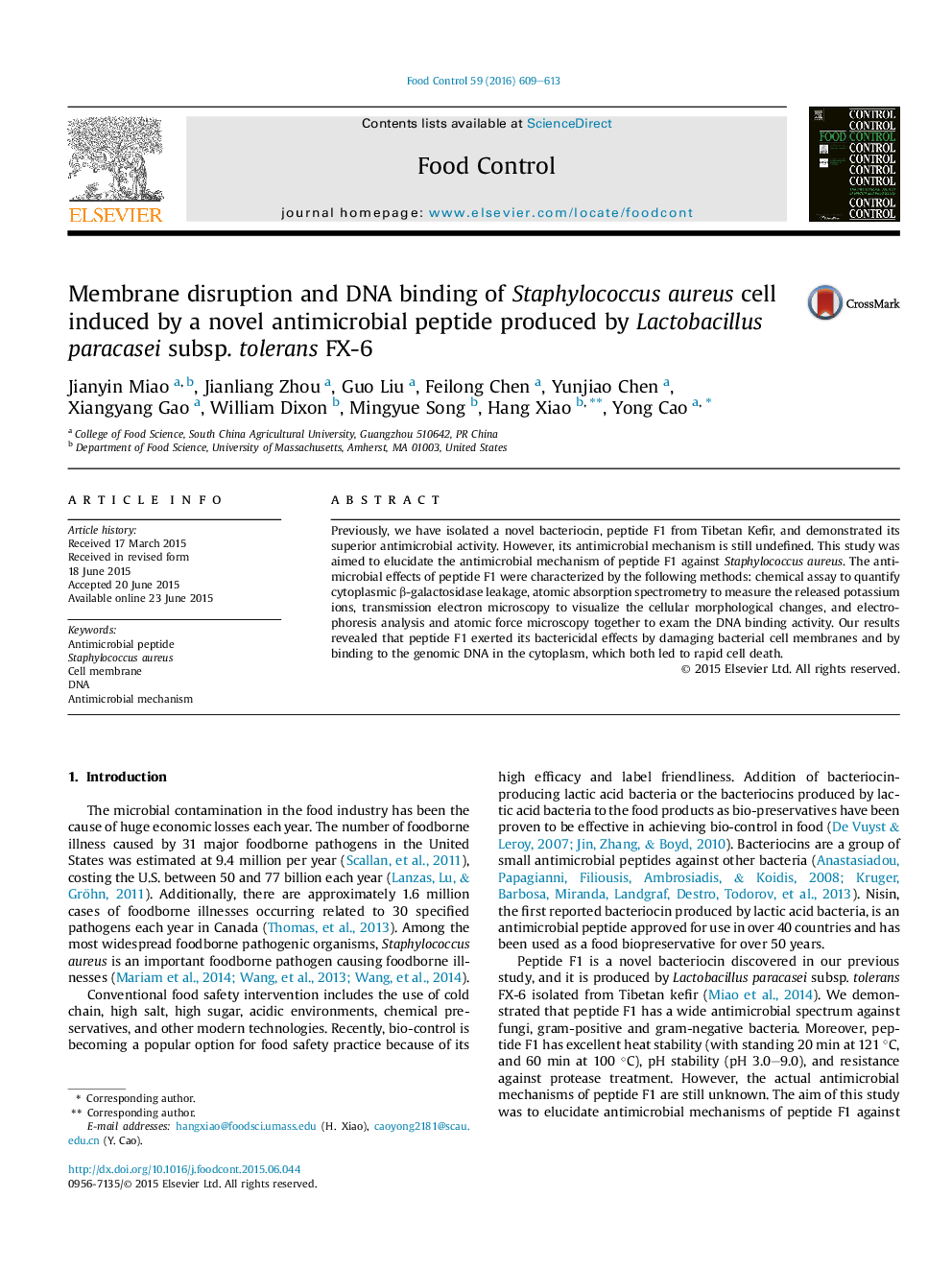| Article ID | Journal | Published Year | Pages | File Type |
|---|---|---|---|---|
| 6390645 | Food Control | 2016 | 5 Pages |
Abstract
Previously, we have isolated a novel bacteriocin, peptide F1 from Tibetan Kefir, and demonstrated its superior antimicrobial activity. However, its antimicrobial mechanism is still undefined. This study was aimed to elucidate the antimicrobial mechanism of peptide F1 against Staphylococcus aureus. The antimicrobial effects of peptide F1 were characterized by the following methods: chemical assay to quantify cytoplasmic β-galactosidase leakage, atomic absorption spectrometry to measure the released potassium ions, transmission electron microscopy to visualize the cellular morphological changes, and electrophoresis analysis and atomic force microscopy together to exam the DNA binding activity. Our results revealed that peptide F1 exerted its bactericidal effects by damaging bacterial cell membranes and by binding to the genomic DNA in the cytoplasm, which both led to rapid cell death.
Related Topics
Life Sciences
Agricultural and Biological Sciences
Food Science
Authors
Jianyin Miao, Jianliang Zhou, Guo Liu, Feilong Chen, Yunjiao Chen, Xiangyang Gao, William Dixon, Mingyue Song, Hang Xiao, Yong Cao,
